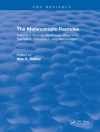This book introduces essential advances in acupuncture studies using multi-modality neuroimaging, which provides insights into how specific brain networks are involved in acupuncture effects in humans. Stimulating different acupoints to treat various clinical conditions is usually accompanied by multi-dimensional physiological as well as psychological responses, which are regulated by the central nervous system. The book addresses disease-specific neural correlates and acupuncture-targeted regulatory encoding in the brain, and explains the temporal-spatial encoding in brain networks to clarify the acupuncture mechanisms. By highlighting the targeting mechanisms of typical indications of acupuncture, this book provides a scientific explanation for acupuncture therapy.
Inhoudsopgave
Early Studies of acupuncture using f MRI.- Temporospatial encoding of acupuncture’s effects in the brain.- Targeting mechanisms of typical indications of acupuncture.- Findings of acupuncture mechanisms using EEG and MEG.- Prospects of acupuncture research in the future.
Over de auteur
Editor Jie Tian is a Professor and Director of Key Laboratory of Molecular Imaging, Institute of Automation, Chinese Academy of Sciences, Beijing.












